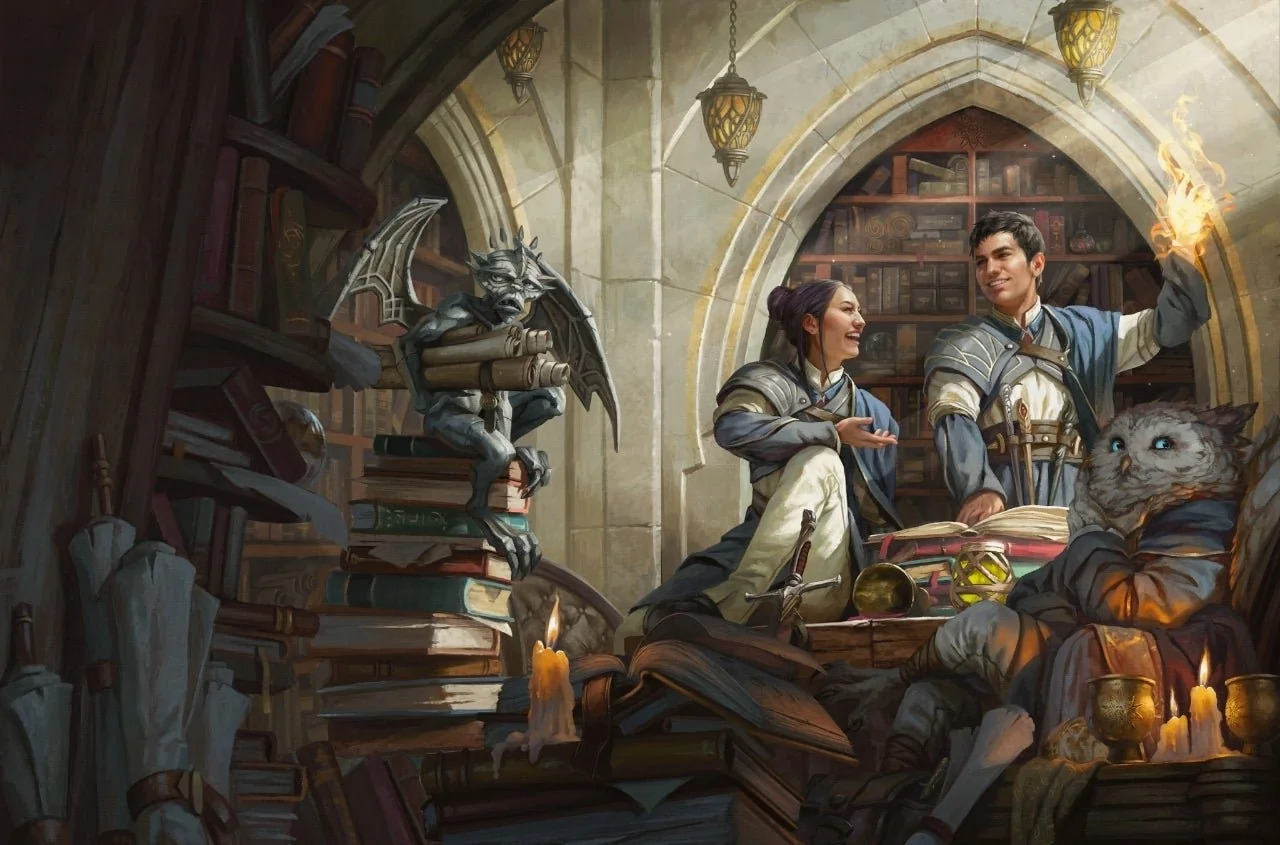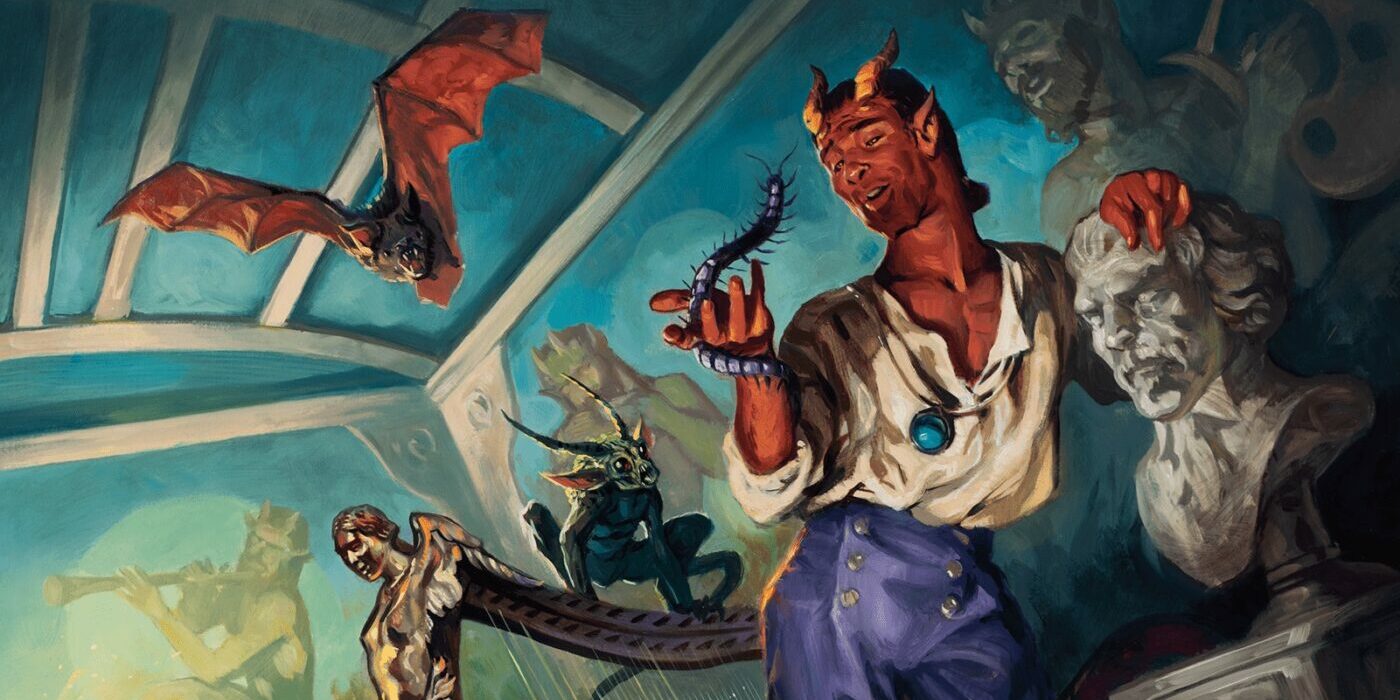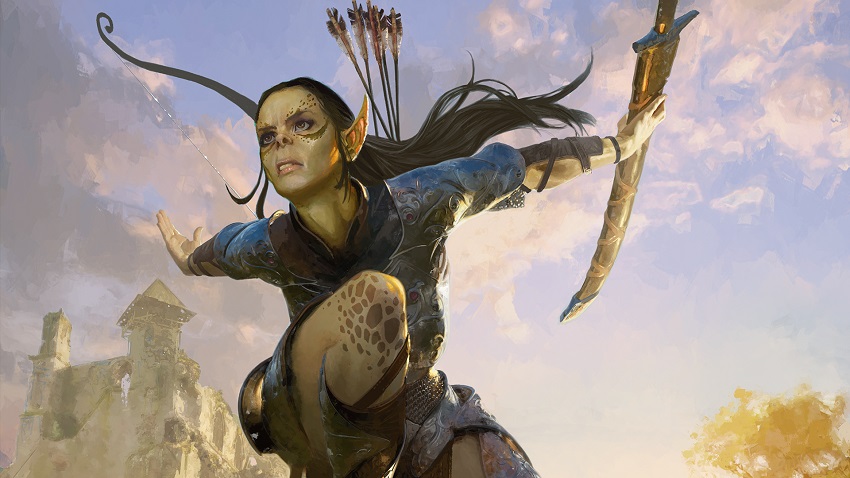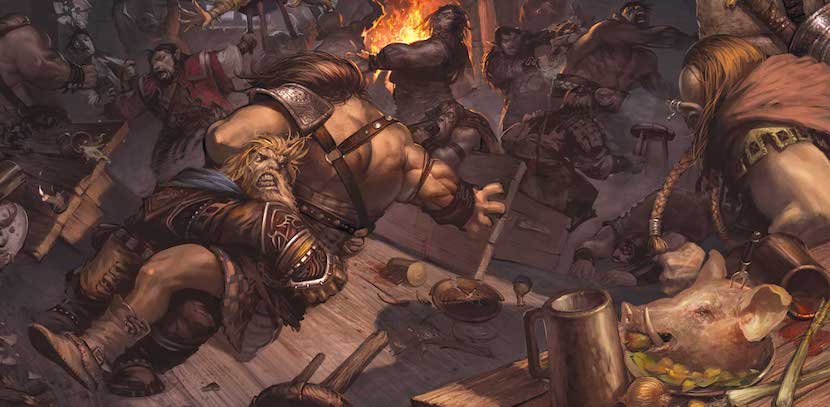Everyone gets an origin feat in D&D now (if you’re playing by the new rules). But which one should YOU choose?
Origin Feats play a big rolle in D&D character creation now. Theoretically, they’re determined by your background, but, practically, player characters can create a custom background, which allows you to pick basically whatever origin feat you want.
But whether you’re choosing one of the 16 pre-created backgrounds, or making your own, the choice of Origin Feat can have an impact on the arc of your D&D character. So, here are some of our favorite feats and what they’ll do for your D&D character if you take them. Hopefully that helps you pick!
Magic Initiate
This is probably one of the most dramatic of the Origin Feats in D&D. It’s powerful, every character can benefit from it, no matter their playstyle, it’s just a generally good choice for pretty much any one.
Magic Initiates get to take two cantrips and one 1st-level spell from the Cleric, Druid, or Wizard spell list. That’s already a strong start. But then they also get to pick which Spellcasting Ability they use (Int, Wis, or Cha) and can cast their chosen 1st-level spell once per Long Rest without a spell slot.
It’s great stuff. It enhances the repertoire of a spellcaster. Characters who don’t cast spells, suddenly have the option. You can do so much with Magic Initiate.
Lucky
Lucky was one of the best feats in 5th Edition, and the same holds true for 5.5E. Lucky is another Origin Feat that will enhance basically any D&D character. Here’s how it works:
You get Luck Points equal to your proficiency bonus and can spend them to give yourself advantage on an attack roll, skill check, or saving throw. And now, you can also spend them offensively to give another creature disadvantage when attacking you.
Alert
Alert works differently from the way it did in 5th Edition. But as far as Origin Feats go, it’s still a potent one, especially for characters that want to go first in combat.
Now, Alert gives you proficiency with Initiative, so you can add your Proficiency Bonus to your Initiative roll. And then on top of that, you can swap your initiative with a willing ally, meaning you can put your thumb on the scale of who acts when.
Tavern Brawler
Another feat that’s seen an upgrade from 5th Edition into 5.5E D&D. Though not as powerful a feat as iti s in Baldur’s Gate 3, the new Tavern Brawler feat does have a lot to offer characters who want to be able to do unarmed combat at all. And this is true even for Monks, though, understandably, they’ll get a little less overall.
But Tavern rawler gives your unarmed strikes a damage of 1d4 + Str for damage, and you can reroll 1’s. That last part is handy for Monks, who will be rolling damage for multiple attacks. Additionally, you gain proficiency with Improvised weapons, and can make a Push whenever you hit a creature with your unarmed strike, giving you a pseudo weapon mastery.
Musician
This one is an interesting choice for a leader type character, Bard or not. You gain proficiency with three musical instruments of your choice, and after every Rest, you can play an encouraging song to give your allies Inspiration. Which means you can make sure your party always starts with Advantage on their rolls, though you can only affect your Proficiency Bonus in teammates at a time.
What are your favorite Origin Feats?
Don’t Miss:
Read more at this site





